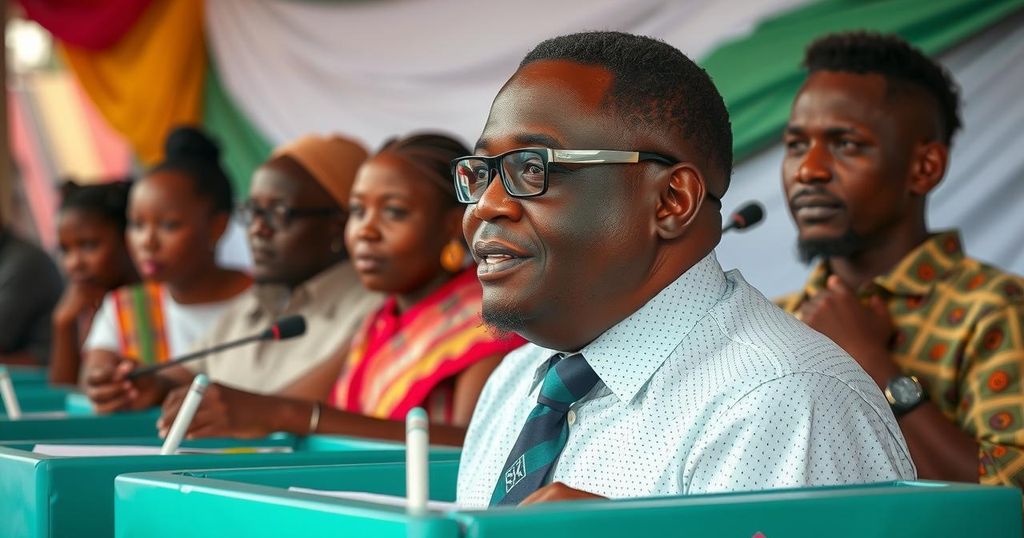Ghanaians will vote in a pivotal presidential election with economic issues front and center. Vice President Mahamudu Bawumia and former President John Mahama are the leading candidates. Voters are concerned about inflation, unemployment, and illegal mining, while both candidates present their solutions. The election highlights the nation’s desire for change and improved governance amid its worst economic conditions in decades.
Ghanaians are preparing to cast their votes in a crucial presidential election on Saturday, with significant economic challenges looming over the nation. Twelve candidates are contesting for the presidency, with former President John Mahama and current Vice President Mahamudu Bawumia emerging as the primary contenders from Ghana’s two major political parties: the ruling New Patriotic Party (NPP) and the opposition National Democratic Congress (NDC). As inflation and unemployment rates surge and living costs skyrocket, voters prioritize economic recovery in their decision-making, with both frontrunners attempting to address these pressing concerns.
The economic landscape in Ghana has been marred by a series of crises, including the COVID-19 pandemic’s impact, which the World Bank reports has led to increased poverty levels since 2020. Inflation rates have reached historical highs, with December 2022 reporting 54.1% year-on-year, prompting significant public unrest regarding the management of the economy. Unemployment among the youth has also skyrocketed, with over 1.3 million individuals aged 15 to 35 jobless as of September of the previous year. Meanwhile, illegal mining practices, particularly the “galamsey” phenomenon, have contributed to both environmental damage and economic instability, further complicating the socio-economic environment.
As the election approaches, the candidates have outlined their platforms with differing strategies to ameliorate the economic conditions. Mahama advocates for a comprehensive reset of governance, focusing on reducing taxes and addressing illegal mining issues. Conversely, Bawumia has pledged to stabilize food prices and enhance local production while digitalizing the economy. The electorate, which encompasses more than half of Ghana’s 34 million population, appears equally concerned about governance as they are about the economy, emphasizing the desire for meaningful change.
Analysts expect a closely contested election, with the potential for no candidate receiving the majority of votes necessary to avoid a runoff. Historical trends suggest a peaceful transition of power, in line with Ghana’s strong democratic practices. Regardless of the outcome, the election represents a pivotal moment for Ghanaians, who yearn for substantive improvements in their living conditions as they engage in this monumental civic duty.
The article addresses Ghana’s impending presidential elections amid a backdrop of significant economic turmoil. Ghanaians are witnessing unprecedented inflation and unemployment rates, which have been exacerbated by the impacts of the COVID-19 pandemic and ongoing socio-economic issues such as illegal mining. The election features intense competition primarily between Vice President Mahamudu Bawumia and former President John Mahama, with economic concerns at the forefront of voters’ priorities. As both candidates put forth their platforms, the broader implications for governance and economic recovery remain critical to the electorate.
In summary, the forthcoming presidential election in Ghana encapsulates the nation’s urgent economic challenges, with inflation and unemployment significantly influencing voters’ preferences. The rivalry between Bawumia and Mahama showcases differing strategies to stabilize and improve the socio-economic landscape. As the electorate prepares to determine their leadership, the spirit of democratic participation remains strong, reflecting a commitment to progress amid adversity. The outcomes of this election will undoubtedly shape Ghana’s future trajectory towards economic recovery and good governance.
Original Source: www.cnn.com






